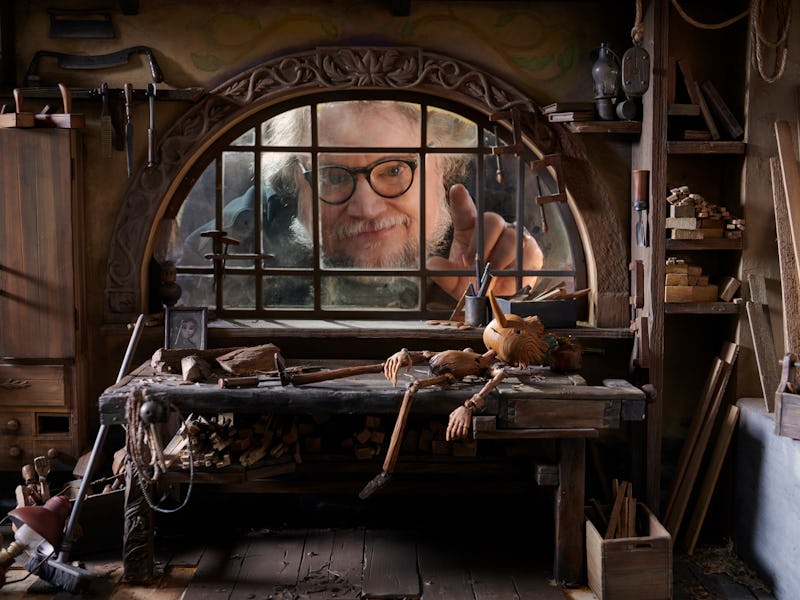Guillermo del Toro Just Exposed the Biggest Problem With AI Movies
At least someone’s fighting back.

Guillermo del Toro doesn’t do anything by half-measures. That’s one reason the director has become so beloved by genre fans: even if his dark fairytales aren’t your cup of tea, it’s impossible not to get swept up in the craft that complements his films. From immersive practical sets to seamless creature effects, del Toro is all about building new worlds in as hands-on a manner as possible. It’s natural, then, that he would have something to say about Hollywood’s growing embrace of generative AI.
AI-assisted filmmaking is gaining a troubling foothold, with more and more directors testing the limits of AI software. This emerging tech, supporters argue, could be a boon to filmmakers who lack the resources to bring their ideas to fruition, as AI negates the need for a completed script or even flesh-and-blood actors. But that’s exactly where AI storytelling oversteps, undermining the importance of creativity and collaboration. Fortunately, we’re a long way from an industry-wide takeover, and as far as del Toro is concerned, AI will never match the human capacity to create.
During an hour-long sit-down with the British Film Institute, the director shared some candid observations about AI-generated stories. “AI has demonstrated that it can do semi-compelling screensavers,” del Toro said. “How much would people pay for those screensavers? Are they gonna make them cry because they lost a son? A mother? Because they misspent their youth? F*** no.”
AI still can’t compete with human storytelling, and del Toro suspects it never will.
For all the innovations it hints at, AI software is nowhere close to telling a compelling story on its own. It can’t replicate a screenwriter’s or director’s vision, nor can it inspire a true emotional response from its audience. On the technical side, it can make some skills, like audio dubbing or visual effects, easier. But easier isn’t always better, especially when it comes to creating (and consuming) art. “The value of art is not how much it costs and how little effort it requires,” continued del Toro, “it’s how much you would risk to be in its presence.”
This isn’t the first time the director has spoken out against AI. In 2023, del Toro called AI-assisted animation an “insult to life itself,” echoing sentiments from legendary animator Hayao Miyazaki. “I am not interested in illustrations made by machines and the extrapolation of information,” he told Decider. “I talked to Dave McKean, a great artist. He told me his greatest hope is that AI cannot draw.”
With the entertainment industry continuing to move forward with AI, we may be closer to the future Del Toro fears than we were in 2023. It’s a daunting prospect for animation and visual effects in particular, and there’s no telling how artists’ relationship with the software will evolve in the coming years. As long as champions like del Toro stick around, however, we don’t have to roll over and accept this future. AI could have its place as a supplementary tool, but it’s important to acknowledge its limits. No matter how good it gets at aping human artists, its creations will never have soul.